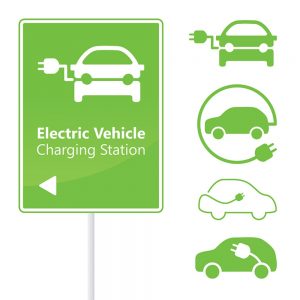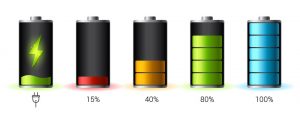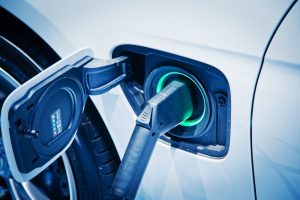Things to Know Before Plugging In
More and more people opt for electric vehicles (EVs) because they are more cost-efficient and eco-friendly than gas or diesel alternatives. My neighbors have a 2011 Nissan Leaf that they have been using for years to commute to and from work, so it is very efficient for them.
If you use your car for long drives, you’ll end up charging them more. Check electricity rates in your area; you may want to sign up for a new usage plan. The more electricity you use, the higher rate you pay (although there are exceptions).
Why do people buy electric cars then? Let’s find out.
Benefits of Electric Cars

Low Maintenance – Since electric cars have no exhaust systems, no starter motors, no fuel injection systems, and other complicated moving parts, they are easier to maintain. An electric motor has just one moving part, which is the rotor. On top of that, you just need to maintain the tires, brakes, and suspension. Make sure you always have necessary tools such as tire inflators, tire pressure gauge and a car jack. No need to worry about refilling fluids (except for windshield washer fluid) and engine cleaning. The battery lasts for at least eight years, so that should be cost-effective.
Charge Up Anywhere – There are many charging stations for electric vehicles. You can even charge them in your home. Make sure to sign up for a usage plan so that you won’t have to pay extra charges for electricity for your EV.
Environment-Friendly – An electric vehicle does not emit any exhaust fumes, mainly because it doesn’t burn liquid fuel. The waste emissions brought about by fuel engines do not apply to electric vehicles. Therefore, you help save the local environment. You can even use solar energy to charge your car. Then, you won’t waste energy, either.
Safe and Secure – Electric vehicles generally have a lower center of gravity (because of the location of the heavy batteries) that reduces the potential of rollover. Also, there is a very minimal risk of fire and explosions should they be involved in a collision.
Frequently Asked Questions
I researched and interviewed some people and compiled some questions about electric vehicles. I hope that your questions will be addressed here.
- What’s the average charging time of an electric car? You can charge your car as fast as 30 minutes to as long as 12 hours. However, the speed of charging depends on the level of

Knowing how much “juice” you’ve got is key to getting where you’re going charging you use, the amperage of the charger, and how big the battery is. You also need to factor the distance that you drive your car, so you may need to do some math. For example, take an electric car that has a 1.5-kilowatt hour battery. On a typical 110-volt outlet that has a 15-amp circuit breaker, it takes 10 to 12 hours to charge up.
- What is an EVSE? EVSE means “Electric Vehicle Service Equipment,” otherwise known as a charging station. The EVSE converts AC power into DC power for your car’s battery. Check your car’s manual on the maximum charge and miles per hour of charging. Ask a certified electrician to install your EVSE at home. You could also get a portable EVSE should you decide to move or if you are always on the go.
- What do the “Levels of Charging” mean? The levels of charging refer to how fast you can charge your vehicle. Not all vehicles are compatible with higher levels. All electric vehicles are capable of Level 1 charging, which is the use of a typical 110-volt, 15-amp wall outlet. Level 2 charging uses a 220-240-volt outlet, at higher amps of 30-50. Depending on the car, you can charge at 3.3 to 10 kilowatts per hour. Level 3 (480-volt) charging is “fast charging,” where you can get higher mileage at higher amperage starting from 10 to 50 kilowatts per hour. Tesla has its own 480-volt “supercharging” that is only compatible with its own cars; it can deliver up to 170 miles of range in about 30 minutes.
- Can I avail of free charging stations away from home? Yes, there are plenty of charging stations out there. You can check out sites or apps such as ChargePoint, EV Charge Hub, and PlugShare to check out the locations. EV Trip Planner was initially available to Tesla owners, but can now be used by Nissan Leaf owners as well.
Etiquette for EV Charging
Here are some simple rules to remember when using charging stations. Since these are public stations, respect the right of other car owners.
-

There are rules on the charging road, too Use designated EV parking for EV vehicles – If you have an internal combustion engine, never park in an EV plug-in spot even if it’s empty. You never know when somebody may need to use it.
- Don’t “hoard” spots – Charge only if you need to. People might need the spot more than you do. Also, once you’re done charging, drive away and leave it free for someone else to use.
- Never unplug other cars – Even if the car is a plug-in hybrid (car with a backup gas engine), never unplug the vehicle. Respect other’s people right to charge up. However, if you see that they are done charging, you can unplug it for safety.
- Always practice safety – After charging, wind the cord properly so that people won’t trip over it. Practice caution when driving away and be careful not to bump into any cars or people.
Conclusion
Electric vehicles are an effective innovation. Electric cars are easy on the budget, eco-friendly and generally safer than gas-powered cars. Most people opt to buy electric vehicles because of these benefits. However, if you frequently use your car for long driving, it may hurt your electricity bill. Check with your electricity provider on a different price package. You can also ask your dealer to refer you to an electrician who can install an EVSE or charging station.
Practice safety and precaution when charging up, at home or in public charging stations. Even though electric cars are safer than liquid fuel vehicles, you should still be careful and respect other car owners.
What are your thoughts? Do you have other questions that were not answered? Please feel free to share your questions, comments, and tips with us. Don’t forget to share this article with your friends!

1 thought on “Tech: Electric Car Charging–A Primer”